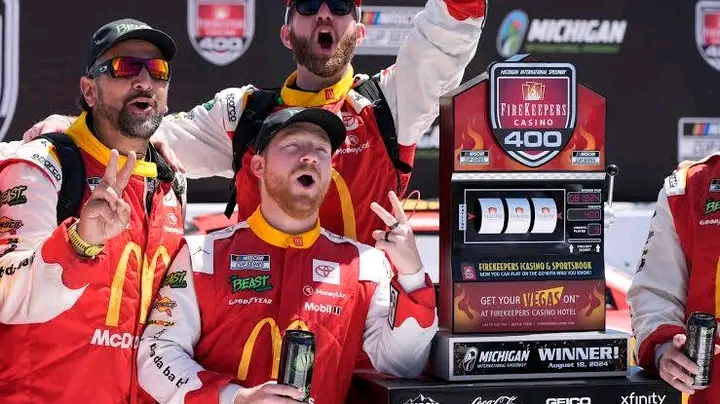In recent months, NASCAR’s relationship with its teams has become increasingly strained due to disputes surrounding the charter system.
Introduced in 2016, the charter system was designed to secure a guaranteed race entry and financial stability for teams in the Cup Series. Despite its initial goals, the system’s implementation has led to heightened tensions and criticisms, with the situation now reaching a pivotal juncture.
The primary issue stems from perceived unfairness and ambiguity in the allocation and management of charters. Charters, which ensure a team a starting position in every race, offer a vital financial safety net by entitling chartered teams to a portion of the sport’s revenue, crucial for their financial planning.
However, many teams are questioning whether the charter system is functioning as intended. Concerns have been raised about the lack of transparency and fairness in the allocation process. Newer or financially struggling teams argue that the system disproportionately favors established teams, making it challenging for them to break into the sport’s elite ranks.
Additionally, the secondary market for charters has become a major point of contention, with charter prices skyrocketing to unprecedented levels. Critics argue that this market dynamics further entrench the advantage of wealthier teams, worsening the gap between the top and lower-tier teams. This has led to allegations that the charter system is being manipulated to benefit a few at the expense of overall competition.
NASCAR’s attempts to address these issues have often been criticized as inadequate or misaligned with the needs of the teams. Calls for a reassessment of the charter system’s rules and practices have emerged, emphasizing the need for fairness and competitive balance.
Teams have expressed frustration over the lack of a clear and consistent strategy for managing charters. The rules and criteria have evolved in ways that seem unpredictable or arbitrary, leading to confusion and dissatisfaction among teams who feel their stability and investment are jeopardized.
As tensions escalate, it is evident that a resolution is urgently needed. Both NASCAR and the teams must engage in negotiations to establish a fair and transparent framework that addresses the concerns of all stakeholders. This will involve rethinking how charters are allocated, traded, and how the system can be adjusted to ensure a level playing field.
The outcome of these discussions will have significant ramifications for NASCAR’s future. The sport’s ability to maintain competitive balance, attract new teams, and ensure the financial stability of existing teams depends on finding a resolution to these issues.
As the dispute intensifies, the focus will be on whether NASCAR can implement changes that restore trust and equity within the sport.
In conclusion, the ongoing charter disagreement underscores the challenges of balancing competitiveness with financial stability in NASCAR. With tensions running high, it is crucial for NASCAR to address these issues transparently and effectively to secure the long-term health and fairness of the sport.
NASCAR Charter Teams Clash: NASCAR’s Charter Disagreement with Teams Reaches New Heights….




